Seventeen years ago, I had an undergrad professor who constantly extolled the virtues of adequate protein intake for “brain-based learning” – a popular educational paradigm at that time. In order to help her students get their protein requirements in, she would pass out Keebler cheese and peanut butter sandwich crackers to each of her students every single class to support brain function, learning, and retention.
I can recall sitting there being like, “WTF?!” I would glance around the room at all of the students, waiting for one…just one of them to read the nutritional label and discover that these snacks weren’t in fact packed with protein. But it never happened; everyone just naively accepted that they were helping their brains function better due to delicious protein filled treats.
For twenty years as a personal trainer, this phenomenon has been bothering me. I can’t tell you how many times I overhear my clients saying something like, “Quinoa is a great source of protein.” Or, “I had some peanut butter because I needed to get some protein in me.” Or, “Almonds are packed with protein.” Or, “I made sure to have a Yoplait yogurt for breakfast since it’s important to have protein in the morning.” If you’re a personal trainer, I’m sure you can relate. And in case you’re wondering why it’s bothersome, it’s because none of these food sources are in fact high in protein.
Check out the nutritional info pertaining to the cheese and peanut butter crackers. You’ll notice that they contain 250 calories, 13 grams of fat, 30 grams of carbs, and 6 grams of protein. Less than 10% of the calories come from protein (46% is fat and 46% is carb). The mere fact that the food has the words “cheese” and “peanuts” in the title fools ignorant people who are unskilled in the art of reading nutritional labels into thinking that the snacks are high in protein when in actuality they are not.
Hypothetical Scenarios
I’m a big fan of flexible dieting (I created a flexible diet guideline for my 2 x 4: Maximum Strength product) – with this system you can work whatever foods you want into your nutrition as long as it fits your macros. You want some Keebler cheese and peanut butter sandwich crackers? Have at it, just make sure you nail your numbers for the day. You have taste buds that don’t enjoy sweets? I hate you, you lucky son of a bitch, but in this case you wouldn’t use up any of your macros with sweets, you simply work the foods that you prefer into your day.
One problem is, many individuals don’t have as much wiggle room as they think they do with their diets. They realize this as soon as they start tracking and stop guessing with regards to their food intake. After finally downloading an app and actually tracking their macros, many of my clients realize that they’re taking in way more calories than they think or they have a few days per week where they go way over what they claim, which sabotages their progress.
Ideally we could all have sky high metabolisms, all men could wolf down 5,000+ calories per day and all women could scarf down 3,000+ calories per day and not gain any weight. But the reality is that many of us are pretty sedentary and only exercise when we hit the gym several days per week for around an hour, and we can’t handle that many calories (maybe we could when we were younger, but not anymore). This is especially true when people get down to the weight they prefer, they find that they can’t eat as much as their brain would like. Bottom line, we all have to exhibit some discipline and monitor our eating habits.
Let’s say you’re a 200 pound male who maintains an ideal physique by consuming 3,000 calories and 200 grams of protein per day. And let’s go back to the example of the Keebler cheese and peanut butter sandwich crackers. If you ate 12 of these crackers, you’d get 3,000 calories – your entire daily allotment, but only 72 grams of protein, thereby falling fall short of your protein goals. You’d also get 360 grams of carbs and 117 grams of fat per day, which is too much for a 3,000 calorie diet that contains optimal levels of protein. Obviously you can see that this snack isn’t really high in protein, and you’re going to need foods that are truly high in protein in order to hit your targets.
I have a 5’4″ female client right now that maintains her ideal current weight of 120 lbs by consuming 1,500 calories per day. She doesn’t do cardio and sticks to weights 3 times per week. I have her aiming for 120 grams of protein per day, 155 grams of carbs per day, and 45 grams of fat per day. She prefers to eat 4 meals per day, therefore she needs to average 30 grams of protein per meal. Getting this 30 grams of protein 4 times per day isn’t easy for many women, at least at first.
In my experience, many women will assume that they’re getting sufficient protein intake because they eat two eggs in the morning (12 grams of protein) and a piece of chicken at night (30 grams of protein). Assuming they get 12 more grams of protein from a can of Greek yogurt and 20 more grams from veggies and other things, this comes to 74 grams of protein per day.
Many men do the same thing, so it’s not just women. In fact, many of my guy friends who don’t lift take in tons of protein but they do so through such fatty meats that they go way over on calories, and their physiques suffer greatly as a result.
Check out the chart I made below.
You will clearly see which common foods are indeed high in protein, which foods are moderate in protein, and which foods are low in protein.
Sure, having things like lentils, refried beans, tofu, and even various veggies not included in the chart such as spinach are useful in helping people hit their protein requirements. However, an entire can of spinach only yields 14 grams of protein, so you’re not going to meet your protein requirements for the day with spinach and other veggies alone. The increased popularity of Greek yogurt over the past decade is great since it is in fact a high protein snack. But at the end of the day, you’re going to need to eat some meat or guzzle down a protein shake here and there. Yes, I realize that there are plenty of vegans out there who have incredible physiques, and many even figure out ways to get adequate protein intake. But the majority of people are not vegan, so for those who are trying to improve their physique, most meals should be centered around a portion of meat (or a shake, which I’ll explain below).
I don’t usually track my macros. Most of the time I just make sure I get my protein each day, and get on the scale in the morning and at night. I then modify my diet accordingly so I stay roughly the same weight. However, I have tracked my macros before and it worked beautifully, plus I have my clients track their macros.
Here’s a strategy I employed when I did track macros (keep in mind that this isn’t necessary – you can fit your macros any way you prefer) that helped keep me on track. Last year, I was consuming around 230 grams of protein, 230 grams of carbs, and 120 grams of fat each day, for around 2,900 calories. I was leaning out at the time and dropping weight. I have an affinity for fatty foods, hence the lower carbs and higher fats. I have most of my clients stick to higher percentages of carbs and lesser percentages of fat. Anyway, I liked to eat 6 times per day. If I divided my daily macros by 6, I needed around 40 grams of protein per meal, 40 grams of carbs per meal, and 20 grams of fat per meal. Getting 35-40 grams of protein per meal 6 times per day isn’t easy for me. It is for people that love to cook and prepare their meals ahead of time, but that’s not me.
This is why I’m such a fan of whey protein shakes. I put two scoops in milk and it yields over 50 grams of protein. If I did this twice per day, this equated to over 100 grams of protein, which went a long way in helping me get to the 230 grams I desired. If you don’t like the taste of shakes, then you definitely don’t need to drink them. But in my situation, whey protein shakes helped me fit my macros.
This is especially important considering that I, like most people, tend to crave fatty and sugary foods. I could enjoy daily servings of my macadamia nuts, my almonds, my cashews, my sunflower seeds, my yogurts, my orange juice, my dried cherries, my Craisins, and my dark chocolate (I wish I liked my veggies but I don’t), because two of my meals per day were mostly protein (2 scoops of whey in skim milk).
Now let’s incorporate this into my averaging scheme. With 2 of my 6 daily meals consisting of the shakes, this left 4 meals per day and took off 110 grams of protein from my total (and also 20 grams of carbs). Now my macros were at 120 grams of protein, 210 grams of carbs, and 120 grams of fat for the rest of the day, which is much more enticing. I should mention that I had a few fish oil caps per day so this took off around 6 grams of fat from the total. Focusing on protein, if I ate 4 cans of Greek yogurt, this took off 40 grams from the total, which left me with 70 grams. If I consumed 2 pieces of meat, or 2 cans of tuna, or 1 piece of meat and 6 eggs, I met my target protein goal for the day (I just needed to make sure I hit the carb and fat targets).
You definitely don’t need to copy my system, the point of flexible dieting is to figure out your own that suits you best. Work the foods you enjoy into the mix, consume the ideal number of meals you prefer, but just make sure you hit your macros consistently. You’ll likely find that the protein target is the hardest to achieve, as carbs and fats are more fun to eat. This practice leads to an incredible physique over time as long as you know how to train properly and manipulate your macros according to your goals.
Conclusion
To conclude this article, please focus on the larger picture. Absorb what’s useful to you and disregard what isn’t – no need to nitpick my info to death, unless you feel I’m highly off base of course. We can all dig up different articles showing different numbers for protein requirements. We can all dig up nutritional labels of brands that differ from the data I showed in my chart. We can argue about clean eating versus IIFYM to death. This article isn’t written for vegans, so if you’re vegan please don’t take it personal. My goals in writing this article was to show people how much protein they’re actually getting from various foods and to provide people with some example scenarios, which is beneficial from a knowledge standpoint. Scientia potentia est (knowledge is power) my friends!

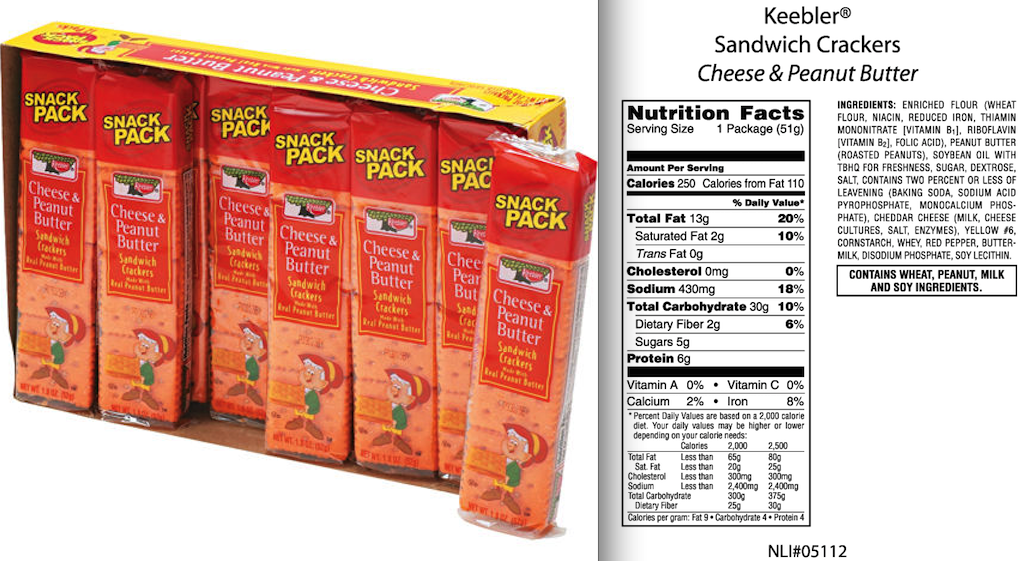
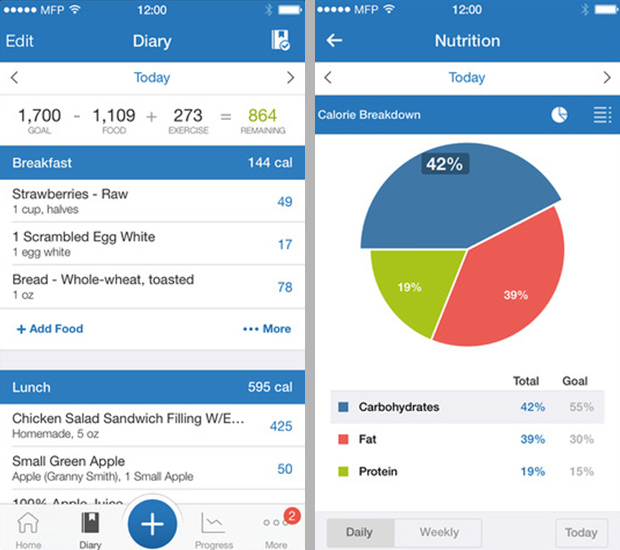
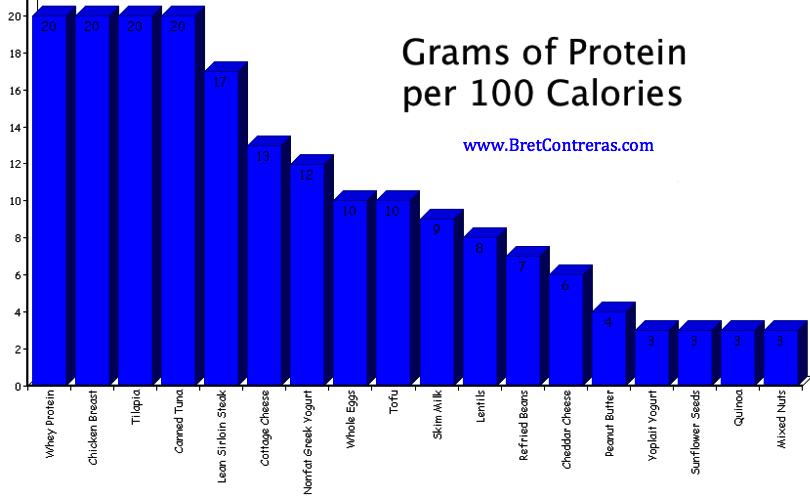
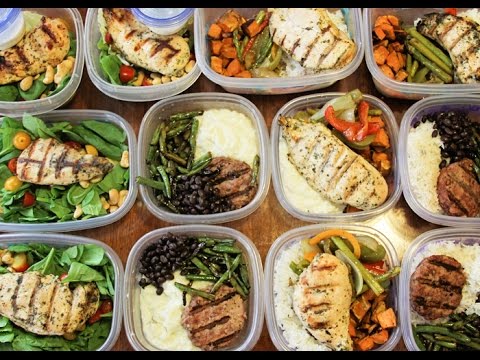
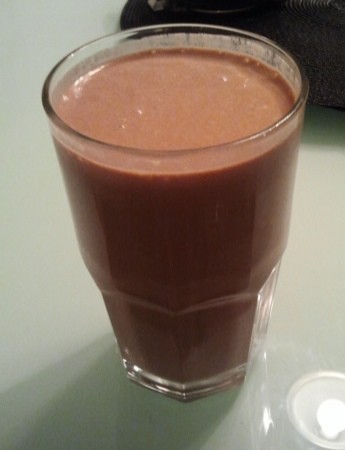

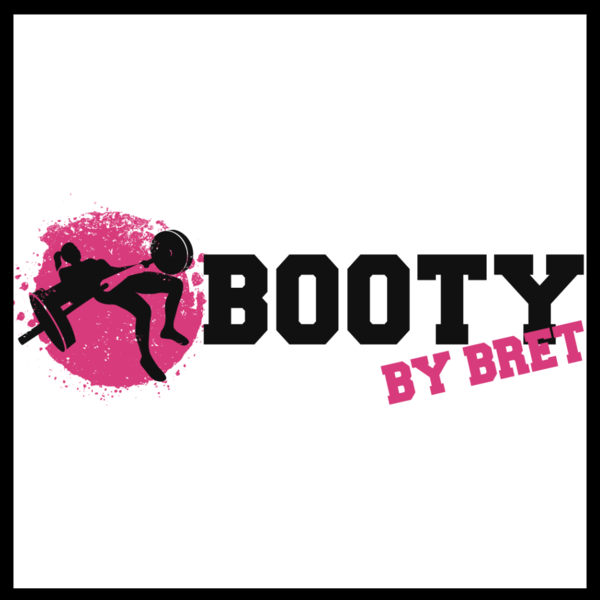
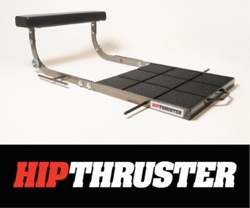
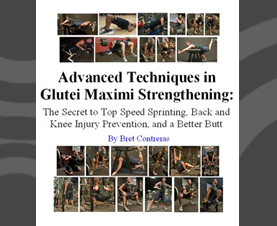
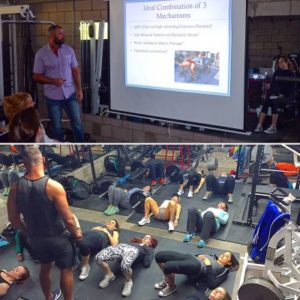
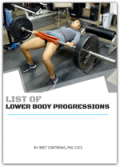
I view beans, lentils and quinoa as carb sources that are high in protein (for a carb source), peanut butter a protein rich fat source.
How come you have your clients higher carb, lower fat? I, too, like fatty foods. Plus I found it much easier eating enough with higher fat macros (127 lbs 5 foot 9 woman used to maintain on 2600 kcal when on my previous job).
Good call Maria, that’s how I view them too. Carb and fat sources that have icing on the cake due to their protein content. I typically do less fat and more carbs because most of my clients are very fit/slender and are therefore probably very carb/insulin sensitive, so they’ll see slightly better results on this scheme. However, if they find fats to be much more highly satiating or tasty, then I would definitely be inclined to swap carb calories for fat calories and experiment over time.
take a look at fage 0% plain greek yogurt. For 100 calories (6 oz)it is actually 18 g of protein. Higher than most!
As easy as it is for most of us to get plenty of healthy protein, for those who don’t understand nutrition it can be much harder for them, completely unknowingly, just like you’ve said! Cereal and fruit for breakfast, soup and salad for lunch, and pasta and bread for dinner = nowhere near enough protein
Exactly Chuck! And in your example, the daily protein intake would be around 30-40 grams…not near enough as you mentioned.
This is such a great resource! For daily protein requirements, do you recommend 1g x bodyweight for someone looking to lose weight? 5’8″ currently 152. I’m lifting at home 4x/week. I struggle with so much conflicting info on the internet as to what is optimal for someone like me!
I like 1 gram/lb of bodyweight, but 1 gram/lb of lean mass is fine, and even .8 grams/lb of lean mass is probably fine too. Of larger importance is your overall calories and whether you’re gaining strength and setting PRs each week.
I am 5’7″ and my weight varies between 148-150. I am working out 4 days a week, circuit training (combo cardio/strength training) I use my fitness pay and I am trying to figure out
how many calories, protein, fats, carbs, fiber etc. I should be eating on a daily
basis to lose weight. I would like to be at 142lbs and lean/tone.
Any suggestions?? Thank you!!
In the past few years I’ve lost 170lbs flexible dieting. Until I started lifting I too believed yogurt and peanut butter were great sources of protein. I have a huge sweet tooth and have found that an excellent way to meet my protein and eat something sweet (and keep carbs at fats low), is mixing my whey with zero fat plain greek yogurt, right there is about 50g of protein. Eat that twice a day and that’s almost 2/3 of my protein.
Excellent tip Ricci!
I aim to eat 2 g of protein/kg bodyweight which is very difficult without the protein shakes. I like them a lot and have no problem with it but I get many comments from people saying that I can’t absorb that much protein. :-/
Hi Bettan, i get that a lot too. Its one of those nutritional myths that dont seem to die. Like Bret says “Knowledge is Power” 🙂
Thanks for this article on the benefits of eating protein. I need to work on my daily protein intake. I do not concentrate on protein calculations but my personal trainer friend does. I
Fab article.
What percentage would you recommend for a 6′ 2, skinny male – probs 13 ish stone to gain/maintain his weight. Hubby is spin instructor and has dropped 2 stone in the past 2 years – now needs to lift and shape up and keep up with his new level of activity. (2 classes a day – full on).
He does have shakes – but not consitently – and has swapped back to porridge in the mornings for warmth..
6’2″ and 182 lbs (13 stones) is pretty skinny in my opinion, but that’s my subjective take. If he’s happy with his weight then that’s perfectly fine. If it were me, I’d go with 185 grams of protein while training to gain strength on a handful of exercises such as squats, deads, hip thrusts, bench, and rows. Two spin classes per day must be brutal!
He’s a typical basketballer build. He knows he needs to do some weights to get some shape to his body.
But he has gone from a sedentary desk job with lots of entertaining (booze and big meals) – gave it all up and retrained. So the weight he has lost was at least just chub not muscle.
Thanks for info – he usually adds a banana and a couple of raw eggs into his protein smoothie.
Which App is that shown above?mNeed a tool like that to keep me on track!
It’s MyFitnessPal.
Excellent article! I have many friends who refer to nuts, quinoa and non-greek yogurt as protein sources! I have started a long journey of weight loss and am have a few questions. How do you calculate your lean mass? Is that for your target or current weight? What whey protein shakes would you recommend?
Shannon your lean mass is calculated when you get your body comp measured. There are multiple ways to do this, some more accurate than others. For example, skinfold measurements, DEXA, etc. If you were 130 lbs with 20% bodyfat, then you’d have 26 lbs of fat and 104 lbs of lean mass. Experiment with shakes and find a brand that you absolutely love in taste, even if it’s a bit more expensive. Life is much more enjoyable when you look forward to drinking your shakes rather than cringing at the thought of guzzling them down. Just my two cents!
I wouldn’t be fooled by quinoa or peanut butter (and I laughed at people who were “getting their protein” by tiny caviar sandwiches — because, sure, caviar is the protein source!), but I’ve been always treating meat and protein as synonims. And for meat, where I live we mostly mean cheaper cuts of pork.
Only last weekend I took a closer look at the nutrition label and did it dawn on me that fatty pork cuts actually suck as a protein source. Like, 12-16g of protein for 100g, really? I can have the same amount with whole eggs — much cheaper and with less fat at that! And way more with cottage cheese. And if you count all the calories from fat… well, I guess carb-dense lentils are a much better protein choice than gammon or shoulder. Which is disturbing and surprising.
It’s good that you’re paying attention to all of this Anastasia!
I tend to go over on my fats often (sometimes as high as 90 grams for 1900 calories but usually around 75 grams). I’m hitting my protein target of 120+ and keeping carbs 150-160. I often eat avocados, nuts, nut butters, Kind bars, cheese, etc. but also occasionally enjoy a nice pork roast or steak. Do you think cleaning up that part would lead to better success? As in cutting my fat intake. I don’t know why I didn’t think it was that big of a deal (besides the whole “good fat” thing). Currently 5’9″, 140. I seem to be building muscle fine but fat loss has slowed!
Maleah, I’m aware of no research showing that if calories and protein are equated, higher carb edges out higher fat for fat loss. In other words, fat and carbs seem to be interchangeable assuming that calories and protein remain consistent. There is research, however, showing that those sensitive to carbs/insulin lose more fat on low fat diets whereas those insensitive to carbs/insulin lose more fat on low carb diets, indicating that diets should be tailored to individuals’ insulin sensitivity (which increases through fitness). So higher fat is fine as long as you reduce carbs. But don’t go too low as carbs are good for fueling hard workouts, they keep thyroid levels up, etc. Sounds like your approach is fine just be more consistent. Just my two cents!
Reading this article in my lunch break, makes sense and very informative.
Thank you.
“You have tastebuds that don’t enjoy sweets? I hate you, you lucky son of a bitch”
Haha!! That’s exactly how I feel! If I could lean out eating NO MEAT whatsoever, I absolutely would, but since I can’t, I include as much healthy meat as I can stand, and make very good use of protein powders. I attempt to make every effort to satisfy my protein requirements FIRST, and then monitor the other macros accordingly. Thank you for sharing this- now I know I’m on the right track!
Samantha, I’m the same way. Don’t get me wrong, I freakin’ love burgers, and filet mignon, and seared ahi tuna, but for the most part I crave nuts, seeds, fruit, yogurt, etc. I don’t crave meat all day long like many of my friends. But I eat meat or eggs a couple of times per day along with the shakes to hit my protein macros.
Well, I love me a good burger, too! But I get tired of chicken and eggs! Lol
I’m learning the fine points of flexible dieting, and its much more sustainable for me and I can honestly say its now becoming a lifestyle… No more guilt, thank you.
Thanks again!
So eating burgers is not a good way to get protein, lets say if you don’t have a bun with it and it’s grass fed beef? I struggle with my protein and sugar cravings. There are so many kinds of protein shakes out there. Some have alot of ingredients I don’t know, do you recommend ingredients not to have, besides looking for one you like and is high in protein?
I saw the flip side of this today in an article on protein being bad for you in “extreme” doses. It was in a well read British paper, they had leading experts (Doctor and a Professor, whom I liked up and had no education/experience in any strength/Fitness phys’) saying amongst a few things that protein in large doses can cause cancer/speed up the process, damage the liver and kidneys and all you need after exercise is a cheese sandwich or a glass of milk. Moreover they had an expert personal trainer who said she now eats nuts and some other bird seed after training as it’s much healthier…sigh.
This will never seem to end, why are the general public so far behind information we figured out years ago.
This is an article/war and peace in and of itself.
It’s a shame that people will blindly follow what’s written or said to them and don’t find out information on their own (this is why I’ve mentioned this actually. .people will read the paper and believe it, at least the un – informed will).
Bret I rank you very highly in the strength and fitness community, please keep providing great information.
Thank you Martin. I agree with you…it will never end. With the media, combined with people’s inherent desire for pseudoscience or flat out b.s., we fight a constant battle. But all we can do is keep trying our best to educate and inform.
loved this! I am 5’3″ weight 115 and aim for 100-115 grams a day. My husband weights 230 @ 6’2″ and aims for 200 grams a day, so he has it a lot tougher than me. My one question, I was taught at a nutrition certification that you can only absorb 25-30 grams of protein every 2 hours. Therefor I have my husband spreading out his 200 grams over 8 meals/snacks a day. I was told if you eat more than 30 at a time it can’t be absorbed as protein because it’s to much at once. I would love to hear your take on this. Ps I too wish all sweets were protein packed & despise all those who tell me “I don’t crave sweets”. Wth is wrong with these people? Thanks for a great read.
Samantha, I agree, those people are not to be trusted LOL. Please read this: http://wannabebig.com/diet-and-nutrition/is-there-a-limit-to-how-much-protein-the-body-can-use-in-a-single-meal/
OH MY GOD!
Thank you!
“High Protein” labels is such a damn scam. I use to use to see that and think, “Oh boy!”. Turn over and less than 10g of Protein among tons of carbs and fats.
It’s enough to make me chunk it across the store.
I have got to get in 228g per day. I don’t got time for <10g of protein.
Things like Peanut Butter, Nuts, and Greek Yogurt are good to stack the Proteins but as a side item to something major like meat and eggs or even Protein shakes. By itself? Why even bother.
Yes, Beans do have protein but you have to think of them as a major source of Carbs and not Protein.
If one serving gives me more than 30g, you are able to label it, "High Protein". Otherwise, get the heck out of here.
Hi Bret. Great article as always.
I have always heard that consuming more than 25 grams of protein in a shake is a waste since the body is limited in how much protein it can digest/absorb in 1 meal.
Good to hear that I can have 2 scoops of protein in a shake and still benefit from it.
At 6’6″ 228 lb, I struggle to get the adequate amount of protein I need.
Alioune, please read this: http://wannabebig.com/diet-and-nutrition/is-there-a-limit-to-how-much-protein-the-body-can-use-in-a-single-meal/
I was lucky enough to learn about pro turn content while pregnant with my first child.
I’m curious id you’ve ever worked with pregnant ladies? Still in the process of muscle building and recently found out I’m pregnant. I’m only 6 weeks now, 125 lb and 5’5″. Just looking for some tips if you have any. I use a 20lb kettle bell and resistance bands at home. I plan on doing some form of strength training the entire pregnancy if I can!
What is your opinion on vegan proteins? I can’t have dairy and I’m finding it hard to eat enough protein. I would like to gain muscle. Im 5’7″ and 115 pounds, just started the gorgeous glutes progam. I was aiming to get 115 grams of protein per day but I know it’s not happening.
This is really great! I agree that so many people eat less protein than they think.
Nia Shanks did a podcast with Kamal Patel from Examine.com and they covered this issue really well. For people having trouble choking back 1g of protein per pound of body weight, you may not need to. There is no harm in it, but Dr. Patel did say that the amount of protein an experienced lifter needs is less than most of us believe. (I think he said 0.75/lb is plenty.) I’m not trying to nit pick at all 😉 I’m just sharing something that was surprising to me. If you love protein than great, there’s no harm in hitting or surpassing this target, but I hear from so many people that they are “proteined out.”
I see you recommend a pretty high carb goal – I started tracking my macros but my PT insists that I need a low goal for carb to lose fat %. 122 pounds with 23% BF goal is to decrease the BF not my weight. 1460 calorie with 164 protein goal -110 carbs and 41 fat..i am working out 6 days a week and I keep reading the importance of carb (good) for energy..am I missing something?? BTW this article is great!
Bret, first off I love your posts! My current weight is 133 and I am 5’4. I consistently workout, I lift 5 times a week but I cannot seem to lose body fat. I had my body fat checked with one of those machines that you hold and it said I was at 28%. I was so dissapointed. I try to eat healthy but obviously I am doing something wrong. I decided I am going to do flexible dieting but there is so much conflicting information online as to what the right macro calculation should be. I am so confused!!!
One of the first things I do when I take on new clients is have them track their food for a few days, and then I review it in MFP. It’s not at all unusual to see diets of 70+% carbs, despite their goals of weight loss. They think they’re doing everything right by eating at a calorie deficit (or so they report) but there’s obviously more to it. It’s a complete lack of education. I print out stuff from Precision Nutrition (meal design and macro percentages) and set them straight. This is a great article, Bret, thanks for writing it.
Keebler Sandwiches?!?!? That’s just so wrong on so many levels. Great article.
Love reading your stuff Bret! Also love being my own guinea pig! The end of your article mention knowing how to properly manipulate your Macros to obtain your perfect physique, any further readings on the topic? Also, any readings on finding ideal weight based on genetics, body type etc? If I can talk you into giving up what daily whey you use also? 🙂
You say you have a client 5’4 120 maintains at 1500c I’m 5’3 155 and everyone acts like I can’t do 1200c a day that’s to low?? I don’t see why. She is maintaining at only 1500 I need to lose 30lbs so I should be lower then her. I’m 31, 5’3 1/2 ,155lbs and I work out 4-5 days a week Cardio 4 and weights 4 help me please? And how should your calories be set on days off from the gym?
I love this! Well said. You are a brilliant man a true innovator!
Very nice.
Excellent, excellent articles. And I thought you were just the ” booty” guy!!! Your articles are so helpful. Please keep them coming. I love getting them in my email. I do have a question for you. I’m 47 years old, 5’2 and lost over 25 lbs in the last 10 months. I now weigh 125 lbs and my goal is 115 lbs. I currently lift heavy six days per week along with daily cardio for a minimum of 30 mins. I work out a lot. I am very muscular. I keep up with my protein intake at a daily minimum of 100-120 grams. I can hit 120 grams or more when I have two protein shakes per day along with other protein foods such as egg whites and chicken. I use MyFitnessPal to track my meals at 1200 daily caloric goal. But more often than not, when I hit my protein goal, my fat intake at the end of the day averages at 30-35% of my daily calories of 1200. My question is, does it matter if my fat grams are 30%-35% (this is usually the case for me) as long as I hit my protein and caloric intake goal? I’m trying to lean out while keeping ad much muscle as possible.
Hi Bret,
in case you need some reference for your vegan followers, here’s one that uses scientific research and no bro science. Enjoy reading:
https://sciencestrength.wordpress.com/2015/02/21/meal-strategies-to-maximise-muscle-protein-synthesis/
Awesome article. I’m also guilty of believing mixed nuts, peanut butter, quinoa and such were good sources of protein. You really put it into perspective when you used the keebler cheese and peanut butter crackers as an example of your only food source in a day. I’ve never liked tracking my macros, but all of a sudden I feel a slight interest in it!
Thanks Bret!
Thank you for the info Bret…as usual…very informative to one that thought I was cool with the Peanut Butter “theory”…how misinformed I was until following you.
OMG, I would really like to have the problem of people who struggle to get enough protein! I’m a woman and it is really hard for me to eat less than 120grams per day, and i suspect that i actually eat more when i’m not tracking… 🙂
Hi 🙂
I’m 53 years old weighing 140, holding that weight for a few years..
I weight train 2x weekly & Pilates 2x weekly. I want to drop 10 pounds but I haven’t a clue how much protein to carb to fat ratio I should be following. Any advise you could give would be greatly appreciated.
Thank you
I’m sorry.. I’m a Female 5’5″ tall..
Thanks,
Jodi
Good article, Bret!
People really don’t recognize when some foods are not good sources of protein unless they read the label closely.
I found that I wasn’t getting enough protein when I started to track my nutrition more closely about 14 yrs ago. I’ve been using 1.2-2.0 g/kg BW for my window to hit. More recently (in the last 2 years or so), I attended a couple sessions at ACSM HF Summit that recommended working on getting 25-30 g of protein at each major meal (less required post-workout) in order to meet the leucine threshold. In modifying my eating plan to accommodate, here’s what I’ve learned: get the 25-30 g of protein at each major meal within the calorie budget for your goal (lose, maintain, or gain). For me, that means lean dairy, lean meat, and selected grain products to get lower cal/higher protein content meals since my calorie budget for maintenance with exercise is about 2000-2200 cal/day (57 yo female, 5’11”, about 160 lbs).
In doing so, 1) I usually hit the protein window without having to force it, 2) I have naturally scaled back on some carb intake (pasta, potatoes, corn, buns for burgers, etc) to fit the calorie budget, 3) I stay satisfied longer, and 4) I still accommodate most special treats in small quantities that I WANT to have. I can make good fast food choices that give me enough protein while still being calorie-smart.
Teresa Merrick/Bellevue, NE
Hi Bret,
I’ve just started on my strength building and have just bought your stronger curves book in the UK. I’m 5’9 and 132lbs (roughly 60kg) I keep getting mixed messages about how much protein, carbs and fat to consume daily. at the moment I’m consuming roughly between 100-120g of protein 130-160g carbs and 50 gr fat (15g saturate roughly) I’m not convinced I’m consuming enough to grow?
Your advice will be massively appreciated 😀
Amanda
If I am only currently running a couple days a week so I still need the same amount of carbs and protein as someone who is working out a lot??
Im having a really hard time getting adequate protein in 1500 calories a day. Today for breakfast i had two eggs four pieces of bacon (yeah i know but i live bacon and only eat it once in a while) and half a cup of mil. For lunch i had two hard boiled eggs chopped up with two tbsp greek yogurt for an egg salad. As a sback i made a protein shake with whey protein powder, a cup of milk and a half a banana. Another snack i had two mini slim jim sticks. I havent even gotten to dinner yet and im already at 1250 calories. Ive only gotten in 64 grams of protein. I really dont know how you managed to get over 200 grams unless you were takinf in way more calories. Its impossible.
Okay so I’m an ectomorph and I am 5’0 and I weigh 110 lbs and I’m trying to get to 130lbs, how many grams of protein, carbohydrate and days would I need daily on working out days?